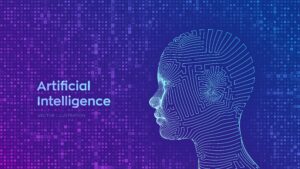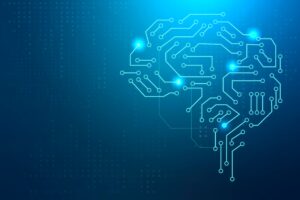Introduction
The rise of artificial intelligence (AI) has led to remarkable transformations in various aspects of our lives. AI-powered technologies, such as ChatGPT developed by OpenAI, are now integral to modern society, performing complex tasks like data analysis and logistics coordination. In May 2023, the CfM-CEPR survey sought to assess the potential impact of AI on global economic growth and job loss rates in high-income countries over the next decade. In this article, we will delve into the survey’s findings, explore different perspectives on AI’s influence on the labor market, and analyze the predictions made by experts regarding job loss in the face of AI’s rise.

The Proliferation of AI
As AI continues to advance, its applications have grown exponentially. Reports suggest that the number of AI patents increased dramatically between 2015 and 2021, underscoring the rapid pace of AI development. AI now plays a vital role in diverse fields, ranging from finance and law to healthcare and logistics, owing to its capacity to learn and improve through machine learning (ML) algorithms.

AI as a Driver of Productivity and Growth
The potential of AI to boost productivity and efficiency has captured the attention of businesses worldwide. Many experts believe that AI will significantly enhance the efficiency of business operations, leading to widespread adoption. The McKinsey Global Institute projects that approximately 70% of companies will integrate at least one AI technology by 2030, and it is predicted that AI could raise global GDP by as much as 14% in 2030, according to Price Waterhouse Coopers.
AI’s Impact on the Labor Market: Perspectives and Predictions
The impact of AI on the labor market is a subject of considerable debate. Scholars have presented contrasting perspectives on the potential effects of AI on employment.
The Doomsayers’ Perspective
Some researchers express concern that AI could lead to substantial job displacement. Studies by Frey and Osborne suggest that a considerable portion of jobs in service occupations are at risk of computerization. Acemoglu and Restrepo warn of historical examples where excessive automation negatively affected the labor market due to weak productivity and reinstatement effects, resulting in significant declines in employment and wages.

The Optimists’ Perspective
Conversely, optimists contend that AI’s productivity and reinstatement effects will outweigh any substitution effect. Some opinion pieces even project that AI and robotics could generate up to 90 million new jobs by 2025. The World Economic Forum predicts that AI will take away 85 million jobs but simultaneously create 97 million new jobs in various fields such as big data, machine learning, information security, and digital marketing.
The Impact on Labor Market Composition
AI is also expected to impact the composition of the labor market. Evidence suggests that the labor market has polarized toward low-skilled and high-skilled jobs due to the advent of computers. However, with AI’s rise, there is potential for a reversal of this trend, as some highly-skilled but routine jobs may be automatable, while certain low-and-medium skilled jobs could remain relatively resistant to automation.
Survey Findings: Predictions on AI’s Impact
The May 2023 CfM-CEPR survey asked experts to forecast the impact of AI on global economic growth and unemployment rates in high-income countries over the next decade. Here are the key findings:
- Economic Growth Predictions: A majority of panellists (63%) believe that AI is likely to boost global economic growth to 4–6% per annum, exceeding the 4% average of past decades.
- Unemployment Rate Predictions: Most experts (63%) think that AI is unlikely to significantly impact employment rates in high-income countries. However, a notable percentage (27%) believes that AI could lead to increased unemployment, while only a few experts (7%) predict a decrease in unemployment.
Perspectives on AI’s Impact on Employment
Various experts provided insights into their predictions on AI’s impact on employment:
1. The Transformation Effect
Some experts argue that while AI may lead to short-term unemployment as certain jobs become obsolete, the supply of labor will adjust over time. This could result in AI transforming rather than eliminating work, leading to a net positive effect on employment. However, these experts also highlight the importance of reskilling to ensure a smooth transition.
2. Addressing Job Loss Concerns for Vulnerable Groups in the Age of Artificial Intelligence
A fraction of the panel expresses concern that AI’s impact on the labor market could disproportionately affect vulnerable groups. They worry that those who may struggle to adapt to a changing work environment might face higher unemployment rates.
3. Uncertainty Surrounding AI’s Long-Term Impact
Several experts express uncertainty regarding the long-term impact of AI on employment. They acknowledge that while short-term unemployment could occur due to automation, AI might reduce the natural rate of unemployment in the long run. However, this remains speculative, and they emphasize the need for further observation.
Conclusion
AI’s integration into day-to-day tasks has been nothing short of revolutionary. As AI continues to advance, its impact on global economic growth and employment remains a topic of uncertainty and debate. While some experts believe that AI will drive economic growth and create new opportunities, others express concerns about potential job displacement. Reskilling and adaptation will play crucial roles in determining the overall impact on the labor market. As the future unfolds, continuous evaluation and responsible development of AI will be essential in harnessing its potential for the benefit of society.
FAQs
Q1: What is the current state of AI adoption?
AI adoption has witnessed a remarkable surge over the past decade. AI technologies are now widely used for various tasks, such as data analysis, logistics coordination, financial services, language translation, and medical diagnoses.
Q2: Can AI boost global economic growth?
Yes, most experts predict that AI could boost global economic growth to 4–6% per annum, exceeding the average growth rate of the past few decades.
Q3: Will AI lead to widespread unemployment?
There is no clear consensus on this matter. While some experts believe that AI may lead to job displacement, others argue that its productivity and reinstatement effects will create new job opportunities.
Q4: How can vulnerable groups be protected from the potential impact of AI on employment?
Ensuring the protection of vulnerable groups involves investing in reskilling and upskilling programs to equip the workforce with skills that align with the demands of an AI-driven economy.
Q5: What should be done to ensure a smooth transition in the labor market with AI integration?
Governments and businesses should prioritize policies that promote reskilling and lifelong learning initiatives. This will help workers adapt to the changing job landscape and create opportunities for growth and development.
For more exciting news visit-www.com373news.com
Окончательная отделка мягкими стеновыми панелями
тканевые стеновые панели спальня вертикальные http://www.myagkipanel.ru.
Impresora 3D Flashforge Creator 4-A
http://www.impresora-3d-flashforgecreator4a.com
http://575.su/bitrix/redirect.php?event1=&event2=&event3=&goto=http%3a%2f%2fsite.ru
Отделка стен мягкими панелями для индивидуального дизайна
стеновые панели мягкие в спальню москва https://myagpan.ru/.
Excellent write-up
thanks